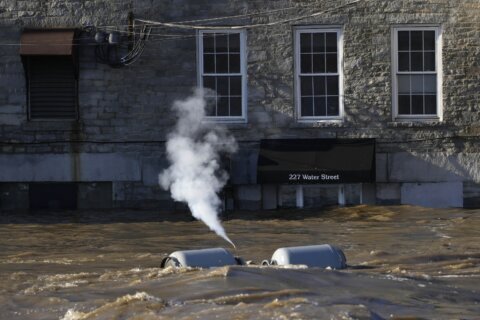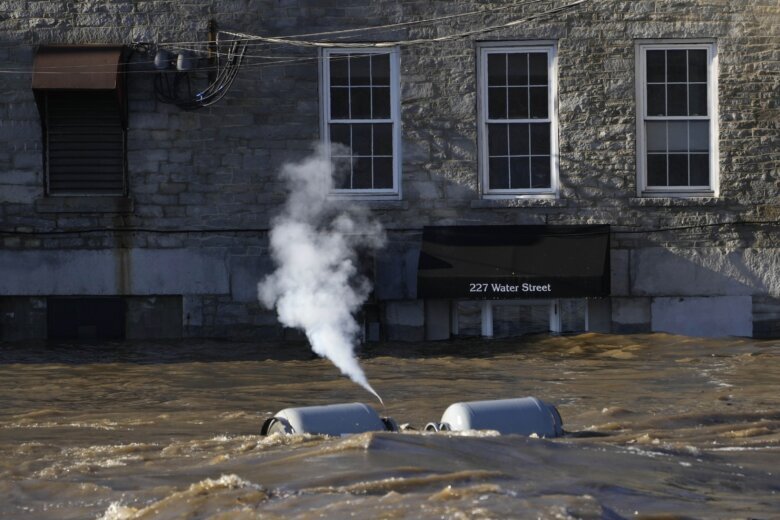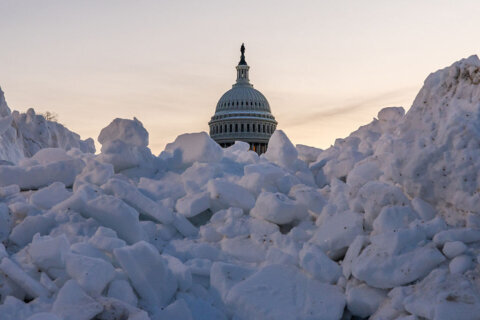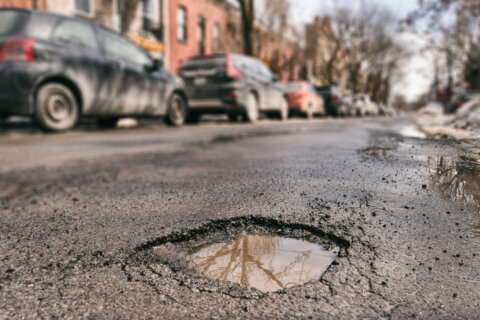
The explosion that destroyed a home and claimed the life of a firefighter in Sterling, Virginia, last week remains under investigation, but what is known is that first responders were called to the house shortly before the explosion because of concerns about a gas leak. And there are some things to keep in mind if you suspect there might be a problem at your home or business.
First off, while natural gas or propane itself is odorless and colorless, additives are put in that are nearly unmistakable.
“Propane happens to smell like rotten eggs, basically,” said Pete Piringer, spokesman for Montgomery County Fire and Rescue in Maryland. “So if you smell that, we want you to leave the area immediately. Shut off the gas if you can and then report the leak.”
There are a few things you should check before evacuating.
“If you’re able to safely do so, put out any kind of smoking materials. If you have the stove burner on or any kind of open flame candles, things like that, try to put them out. We prefer that you don’t operate any kind of lights, appliances, even cellphones. Any kind of flames or sparks from any source can trigger an explosion or fire, if the conditions are right.”
Smaller tanks, such as what’s used in a grill or outdoor firepit should be stored outside. The weather in the D.C. area isn’t extreme enough to impact them too much, though you’re better off keeping them under a back porch and in a shaded area.
If you have a larger tank, or one that’s buried underground, Piringer suggested having it inspected regularly.
“It’s probably a good idea to have a maintenance contract, a regular service to make sure things are good there,” Piringer said. “Who is the service provider? It’s good to know how much product you have in your tank: when was it last filled? How old is the tank? These are all things that emergency first responders will want to know when they get there.”
Piringer repeatedly stressed the importance of having your tank inspected and serviced regularly.
“We have had some instances where there are large tanks, underground tanks, and say a lawn mower or some other heavy equipment might come along and break the fill valve and that causes a leak,” Piringer said. “So, there’s things that can happen to underground tanks and, of course, it depends on how long it’s been leaking, how much product is in there. It can permeate the soil and it’s still an explosive — could be potentially an explosive situation — if it finds an ignition source.”
He also said some tanks have built-in safety valves that release gas if they become over pressurized. That venting process could be something you happen to smell. If that’s the case, your best bet is to go to a neighbor’s house and call the experts.
“If you have any concern whatsoever, if you smell the gas, yes, we would want you to call 911 and your service provider,” Piringer said. “Having a service contract, they will also give you some instructions on what to do and so forth. But there’s a number of valves … we hope that you’re not going to look at the tank for the first time needing to shut it off.”
Get breaking news and daily headlines delivered to your email inbox by signing up here.
© 2024 WTOP. All Rights Reserved. This website is not intended for users located within the European Economic Area.









